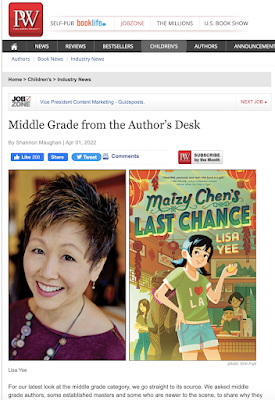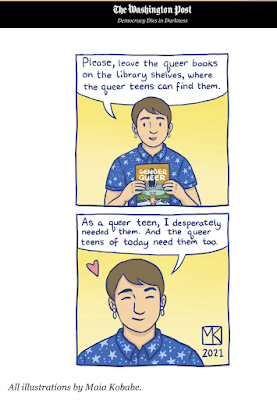One is a writer; the other is an illustrator.
Both are from Sri Lanka, a country so far away from the US and so tiny on a world map, that most would miss it.
So how did we succeed in getting published by some of the best publishers in the world?
We share our experience and advice in the hope it will inspire you, wherever you are and whatever your experience in writing and illustrating has been, that anything is possible.
What motivated you to get published internationally?
Thushanthi: I’ve always wanted to write a book in my lifetime. And during the pandemic, I was fascinated by the news that a Sri Lankan writer I knew—Amanda Jayatissa—had scored a book deal with Berkley Publishing, an imprint of Penguin. Growing up, much of my personal library had the little penguin logo on it, but I didn’t think it was possible that a book written by a Sri Lankan in Sri Lanka could even be published internationally. That was how “out there” of an idea it was for me. But once I had this information, I couldn’t let it go. And when I wrote my first draft of a picture book, I started dreaming big. I decided that somehow, someway, my stories too would be side by side with the best books in the industry.
Bhagya: I have always loved to tell stories through my art. When I realized that I wanted to illustrate children’s picture books, I was reminded of the Russian and Japanese picture books that I read as a child. We didn’t have the luxury to access many books, but some of those illustrations are imprinted in my memory although I can’t remember the names of those books. Maybe it was because they showcased such unique cultures. Sri Lanka is also so rich in culture, I thought it would be wonderful to be able to share it with the world. Eventually, I start learning about the publishing industry and I found that the international publishing market provides more opportunities to perfect my craft and a wider audience. That’s when I decided to chase the dream.
How did you start going about it?
Thushanthi: I joined Twitter’s #writingcommunity and the rest is history! The kidlit community is so helpful and friendly, and I soon figured out what I had to do and set about doing it. I joined SCBWI, was invited to join a critique group, entered competitions, won a mentorship with WNDB, and wrote and revised…A LOT.
Bhagya: It all started with the pandemic. At the time I was occupied with architectural work as professionally I am an Architect. However, the pandemic allowed us space to explore our artistic sides and connect with like-minded people virtually. In the beginning, I knew nothing about publishing; especially not the specifics such as agency, agent, editor, art director, publisher, and so on. I thought that doing an illustration and sharing it on social media was enough to get a new project or recognition in the children’s industry (although I did get some amazing opportunities after a long wait). This continued until I met this amazing friend Kamla M. Nair , who is from India. She educated me about what it is to have an agent/agency represent you and how I should focus more on my portfolio if I wanted to get published internationally. That’s when I focused more on perfecting my craft, all through self-learning.
What are the challenges you have faced as an outsider?
Thushanthi: I would have to say the cost. The Sri Lankan rupee was weak against the US dollar – more so now—so anything that would cost a lot of money I would avoid as I couldn’t justify it. On the flip side, I was grateful that so many resources are freely available online. And thanks to the pandemic, I was able to attend loads of writing conferences and webinars virtually. I appreciate the diverse scholarships and mentorships that don’t require you to be a US citizen to enter. I really hope this aspect remains even as things go back to in-person. The other challenge is the time difference, nearly half a day! Waking up at 4.30am is not fun, but again, I’m grateful that there is space for me at all.
Bhagya: The cost of study materials such as online courses and online books is often too high to be affordable because of the extremely unfavorable exchange rate. This makes it almost impossible to access them. This led me to study from YouTube tutorials and other websites with free access. Fortunately, I was able to learn almost everything I know through these free resources! The time difference is also a challenge, mostly when it comes to the end of the project where quick feedback is vital to make the necessary progress in order to meet deadlines.
Finally, what is your advice to anyone living outside the US who wants to get published there?
Thushanthi: It is hard work. You need to be committed to improving your craft. Read recently published books in the genre you want to write, even the award winners, and compare those against your own writing. Study and learn how to write a book—technique matters as much as talent. Be prepared to revise the same story dozens of times and be rejected repeatedly before you find success; it can take years. Mostly, you need to be confident in your abilities and proud of your differences; your identity is what makes your stories unique and authentic! And keep building your community. I couldn’t have come this far without my writing friends. Even from miles away, their support is invaluable.
Bhagya: My most important advice is that there is an incredible artist community out there who is openly willing to help each other. Do not be afraid to reach out to them, stay connected and educate yourself in the areas you are lacking. Improve your artistic skills, question what is missing in your art style, and improve that. Get out of your comfort zone every now and then and learn something new. Of course, the path is not smooth and learning and improving yourself is a never-ending process. So don’t forget to enjoy every bit of it and eventually you’ll get there without even knowing it!
.jpg) Thushanthi Ponweera is an author and poet from Sri Lanka. Her debut middle-grade verse novel I am Kavi is forthcoming from Holiday House in 2023. She is a former We Need Diverse Books mentee and a blogger for the same organization. Her writing reflects the frustration she feels at the inequality and injustice she sees around her, and also the deep love she feels for her island home. You can read more about her at www.thushanthiponweera.com and she can be found tweeting furiously as @thushponweera.
Thushanthi Ponweera is an author and poet from Sri Lanka. Her debut middle-grade verse novel I am Kavi is forthcoming from Holiday House in 2023. She is a former We Need Diverse Books mentee and a blogger for the same organization. Her writing reflects the frustration she feels at the inequality and injustice she sees around her, and also the deep love she feels for her island home. You can read more about her at www.thushanthiponweera.com and she can be found tweeting furiously as @thushponweera.
 Bhagya Madanasinghe is a children’s book illustrator and architect from Sri Lanka, a colorful little island in South Asia. Bhagya's style combines simple shapes with ambiguous colors and she is dedicated to creating characters with emotions and actions emphasizing the mood of her illustrations. She loves exploring new places to inspire her work. Her forthcoming books include Something is happening to our planet
Bhagya Madanasinghe is a children’s book illustrator and architect from Sri Lanka, a colorful little island in South Asia. Bhagya's style combines simple shapes with ambiguous colors and she is dedicated to creating characters with emotions and actions emphasizing the mood of her illustrations. She loves exploring new places to inspire her work. Her forthcoming books include Something is happening to our planet written by Marianne Celano & Marietta Collins, published by Magination Press,
My teacher has tattoos written by Darren Lopez and published by Soaring Kite Books, and
Awe-Samosas written by Marzieh Abbas published by Clarion Books. Besides being an illustrator, Bhagya enjoys developing architectural design concepts with her husband in his architectural studio. You can find her on Instagram as @moving_doodles.
.jpg) Thushanthi Ponweera is an author and poet from Sri Lanka. Her debut middle-grade verse novel I am Kavi is forthcoming from Holiday House in 2023. She is a former We Need Diverse Books mentee and a blogger for the same organization. Her writing reflects the frustration she feels at the inequality and injustice she sees around her, and also the deep love she feels for her island home. You can read more about her at www.thushanthiponweera.com and she can be found tweeting furiously as @thushponweera.
Thushanthi Ponweera is an author and poet from Sri Lanka. Her debut middle-grade verse novel I am Kavi is forthcoming from Holiday House in 2023. She is a former We Need Diverse Books mentee and a blogger for the same organization. Her writing reflects the frustration she feels at the inequality and injustice she sees around her, and also the deep love she feels for her island home. You can read more about her at www.thushanthiponweera.com and she can be found tweeting furiously as @thushponweera.




.jpg)
